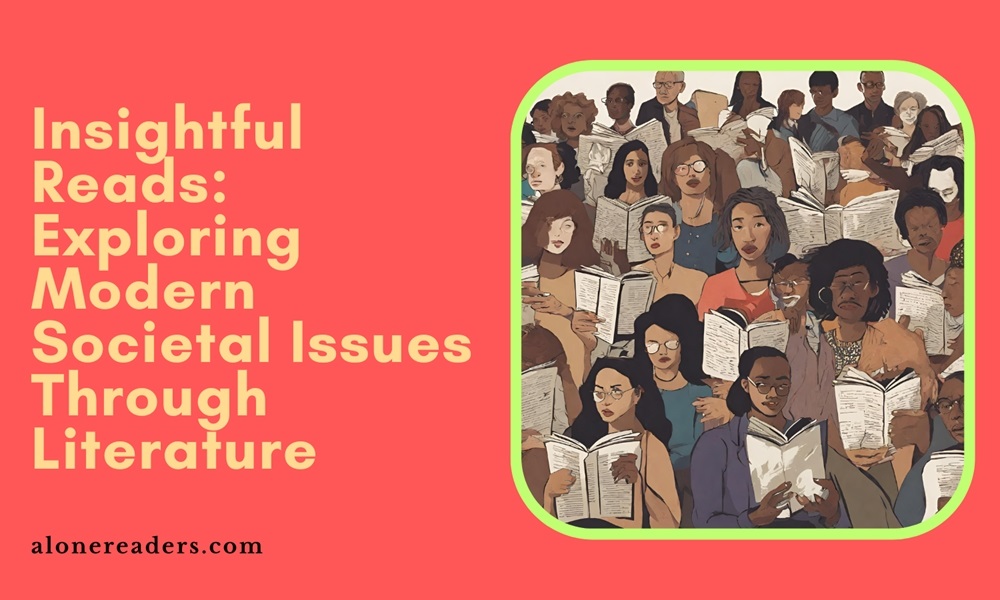
In an era marked by rapid societal changes and complex challenges, literature continues to serve as a mirror reflecting the multifaceted aspects of modern life. This article delves into a selection of books that offer insightful perspectives on contemporary societal issues. These works not only entertain but also enlighten, urging readers to ponder and engage with the realities of our times.
"Americanah" by Chimamanda Ngozi Adichie
A powerful narrative about love, race, and identity, "Americanah" explores the story of a young Nigerian woman, Ifemelu, who immigrates to the United States. Adichie delves deep into themes of cultural identity, the immigrant experience, and the nuanced realities of race in America. This novel is a profound exploration of finding one's place in a world that is constantly shifting.
"The Vanishing Half" by Brit Bennett
Brit Bennett's "The Vanishing Half" examines the American history of racial passing through the lives of twin sisters who choose to live in two very different worlds, one black and one white. The novel is a poignant exploration of identity, family, and the lasting influence of the past on the present.
"The Circle" by Dave Eggers
In this dystopian novel, Eggers portrays a world dominated by a powerful internet company that advocates for transparency and the end of privacy. "The Circle" is a cautionary tale about the dark side of technological advancement, raising critical questions about privacy, surveillance, and freedom in the digital age.
"Super Sad True Love Story" by Gary Shteyngart
Set in a near-future America, Shteyngart's novel is a satirical take on a society obsessed with youth, data, and the continuous broadcast of personal information. It is a story that combines a poignant love narrative with a critical examination of technology's overwhelming control over our lives.
"The Overstory" by Richard Powers
This Pulitzer Prize-winning novel intertwines the lives of nine characters with the world of trees, highlighting humanity's relationship with the natural world. Powers' work is a sweeping, elegiac portrayal of the environment, advocating for a deeper understanding of our connection to the earth and the catastrophic consequences of our actions.
"Flight Behavior" by Barbara Kingsolver
In this thought-provoking novel, Kingsolver tackles the complex issue of climate change through the story of a young woman who discovers a colony of monarch butterflies in the Appalachian Mountains. The narrative gracefully entwines personal transformation with the broader implications of environmental disruption.
"The Hate U Give" by Angie Thomas
This critically acclaimed novel tells the story of a teenager who witnesses the police shooting of her unarmed best friend. Thomas offers an unflinching look at racism, police violence, and the Black Lives Matter movement, making it a crucial read for understanding the ongoing struggle for justice and equality in America.
"Home Fire" by Kamila Shamsie
"Home Fire" reimagines Sophocles' tragedy "Antigone" in the context of contemporary British society, dealing with themes of family, loyalty, and radicalization. Shamsie's novel is an urgent and gripping tale that challenges perceptions and invites dialogue on complex geopolitical issues.
"Eleanor Oliphant is Completely Fine" by Gail Honeyman
This novel presents a touching and often humorous look into the life of Eleanor Oliphant, a woman who struggles with social skills and harbors a painful past. Honeyman's portrayal of loneliness and the importance of human connection is both moving and uplifting, offering a deep dive into the subject of mental health.
"The Bell Jar" by Sylvia Plath
Though not a contemporary novel, "The Bell Jar" remains a seminal work in its exploration of mental illness and societal expectations. Plath's semi-autobiographical novel about a young woman's descent into mental illness offers a timeless commentary on the pressures that society places on women.
These books serve as both windows and mirrors: windows into experiences different from our own, and mirrors reflecting our own lives and societies. They encourage readers to question, empathize, and engage with the world around them. In exploring themes such as identity, technology, environmentalism, social justice, and mental health, these authors offer not just stories, but pathways to understanding and responding to the complex issues of our time. Through the power of literature, we are given the tools to contemplate, discuss, and, ultimately, influence the ever-evolving narrative of our modern society.